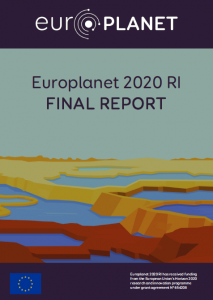Europlanet 2020 RI Final Report published
The Final Report on the Europlanet 2020 Research Infrastructure (RI) project has been published.
The report concludes that Europlanet 2020 RI, which ran from 1st September 2015 until 31st August, has produced a step-change in research in Europe by providing the largest open access research infrastructure for planetary science in the world. The project has established the structures for longer term collaborations both within the European community and between Europe and international partners. In December 2018, the European Commission recognised Europlanet 2020 RI as a Horizon 2020 success story.
Overall, Europlanet 2020 RI has had major impacts for the community:
- Europe’s planetary simulation and analytical facilities have been upgraded through the JRA programme and the Transnational Access programme has led to the publication of high-impact research.
- Europlanet’s Virtual Access activities, VESPA and PSWS, have evolved into mature, well-used facilities with protocols and tools that have become standards in the worldwide Virtual Observatory communities.
- Networking activities have been effective in disseminating the outputs of the project and developing capacity in under-represented states within the European Research Area and beyond.
The procedures implemented and lessons learned during the project have enabled Europlanet to refine the mechanisms and protocols necessary to enable mobilisation and collaboration within the planetary community and to maximise the impact of European talent and facilities .
Over the coming weeks, the Europlanet Society website will highlight some of the case studies from the report demonstrating how the Europlanet 2020 RI project has been working towards the strategic objectives for a research infrastructure (defined by the OECD):
- Be a national or world leading scientific research infrastructure and an enabling facility to support science.
- Be an enabling facility to support innovation.
- Become integrated in a regional cluster/in regional strategies/Be a hub to facilitate regional collaborations.
- Promote education outreach and knowledge transfer.
- Provide scientific support to public policies.
- Provide high quality scientific data and associated services.
- Assume social responsibility towards society.
Europlanet 2020 RI’s legacy, supported within the sustainable framework of the new Europlanet Society, will provide a solid foundation for a European planetary research infrastructure for decades to come.
Europlanet 2020 RI received funding from the European Union’s Horizon 2020 research and innovation programme under grant agreement No 654208.


